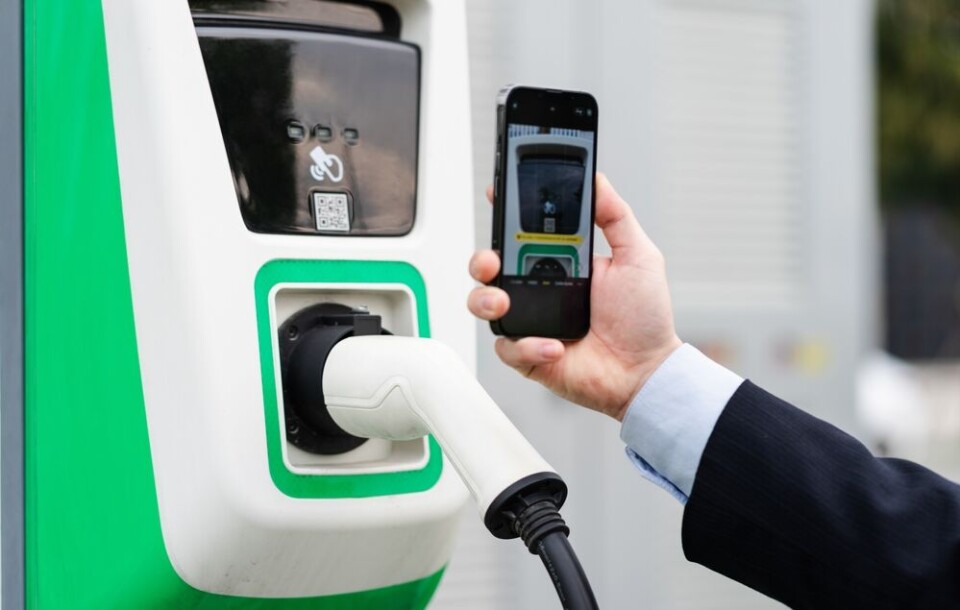-
Briton crashes after driving 10km wrong way on French motorway
Police believe the 88-year-old was confused by driving on the opposite side of the road to the UK
-
Cheque use falls in France - but fraud levels remain high
The traditional payment method is still popular with many
-
French nature festival is a paradise for bird watchers
The spring event runs from April 12-20, showcasing the rich flora and fauna of the Baie de Somme
Warning over QR code scam with electric car charging in France
The warning comes as the number of electric vehicles on the roads continues to rise

Electric vehicle drivers in France are warned to be alert to fake QR codes on electric charging stations, which are criminal attempts to steal your payment details.
The fake QR codes have been reported particularly in the department of Loiret (Centre-Val de Loire), but the problem may be more widespread, especially as increased numbers of people are buying electric vehicles in France.
How does the scam work?
The scam sees fraudsters stick new QR codes over the original codes on the charging station, to divert users away from the original website to a fake one.
To use a QR code, you hold up your phone’s camera to the code, and it then takes you to a specific webpage. The idea is that this is easier and faster than typing in a URL address.
The original codes are genuine, and let drivers use their smartphone to enter their details and pay for their charging. However, the scam QR codes take drivers to a fraudulent website with a view to stealing the user’s bank details.
In some more sophisticated versions of the scam, the scammers appear to set limits on the amount of money they can take, to make the scam appear more legitimate. However, they may take more later.
Valérie Martin, mayor of the commune of Lorris in Loire, which has been particularly badly affected by such a scam, told Capital: “As soon as we were informed of the hacking, our service provider INEO reacted swiftly and the terminal was immediately deactivated to prevent any more victims.”
How can I avoid the scam?
Users are advised to be alert to small details when using a QR code to pay for charging (or for anything else).
For example:
-
Is the QR code part of the original sign, or does it appear to be a sticker added later? Is the QR raised up from the rest of the sign when you touch it?
-
Does the printing quality of the QR code appear to match the rest of the sign?
-
Are any text, colours, or details on the QR code in a different colour or font?
-
Does the website I am taken to appear to be legitimate (web address, quality, spelling, stretched logos, etc)?
There are other signs that may help detect a scam; for example, secure websites begin their URL with ‘https://’ rather than ‘http://’ and payment websites will typically display a padlock symbol on the URL browser bar to show it is secure. Scam websites may not show this.
If you suspect a scam, or believe you have fallen victim to it, call your bank immediately to stop any payments. You can also report the scam to THESEE, the online scam reporting service, through the relevant government information page on Service-public.fr.
Read more: France launches new online platform for reporting internet scams
Electric cars on the rise
Electric and hybrid vehicles are becoming increasingly common in France, making up one in four new cars bought in 2023. Electric cars represented 16.8% of new registrations in 2023, while 9.2% were hybrids.
There are already more than 1.5 million electric and hybrid vehicles on the roads in France, show figures from electric transport association Avere. The most common vehicles are Tesla Model 3 and Model Y, the Dacia Spring and MG4, the Fiat 500e, and the Renault Mégane E-Tech Electric.
In 2023, France exceeded its stated goal (although slightly later than planned) to install 100,000 charging stations nationwide. Of these, almost 15% are fast charging (more than 50kW).
It comes as the government launched its €100-per-month electric vehicle scheme late last year, amid extra financial aid schemes to help people buy lighter, less polluting cars. Up to €7,000 is available, depending on your household income and car usage.
Read more: Scheme to rent electric car for €100-a-month launches in France
Related articles
Warning to drivers over scam parking fine tickets in France
Here is the list of electric cars eligible for aid in France in 2024
Scam alert in France: ‘Unpaid driving fine’ SMS with fake link
























